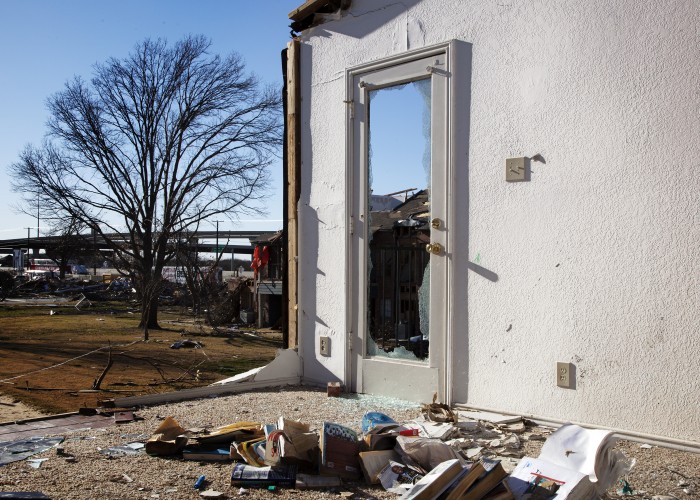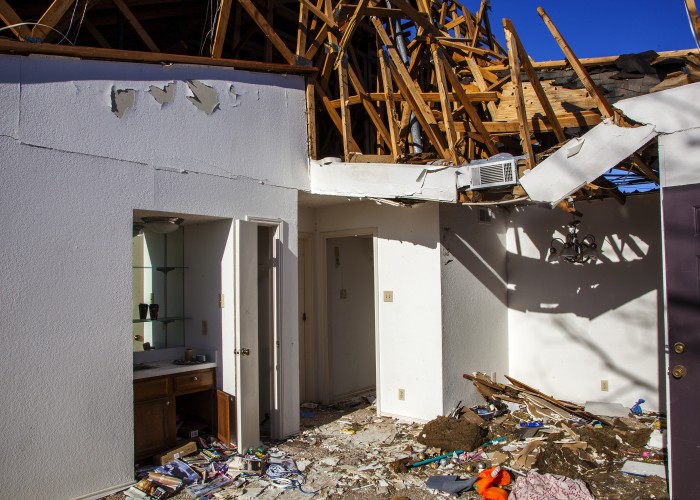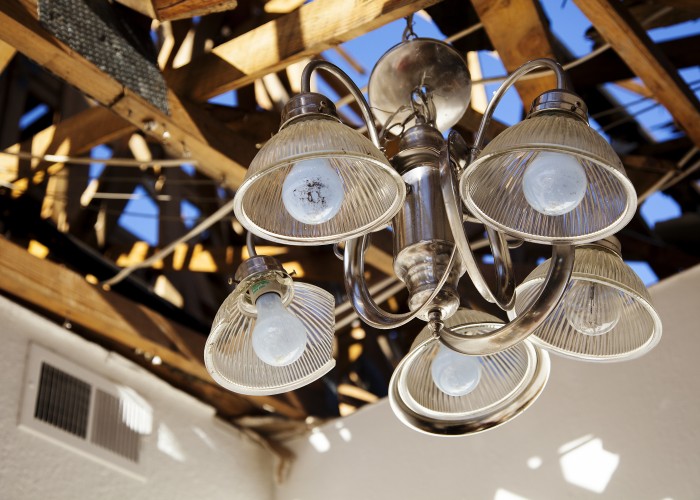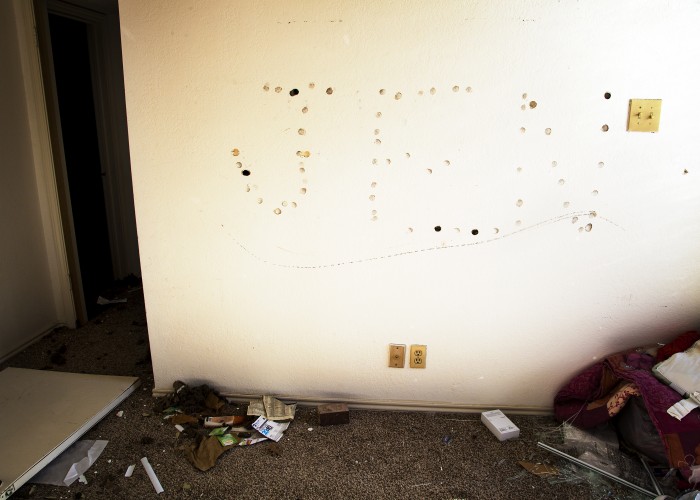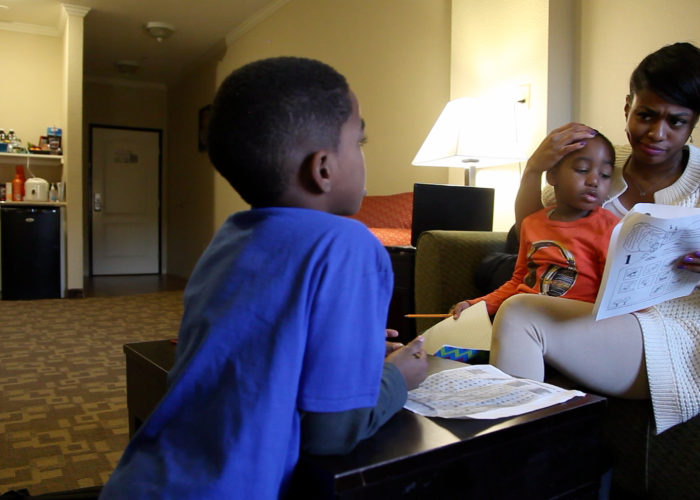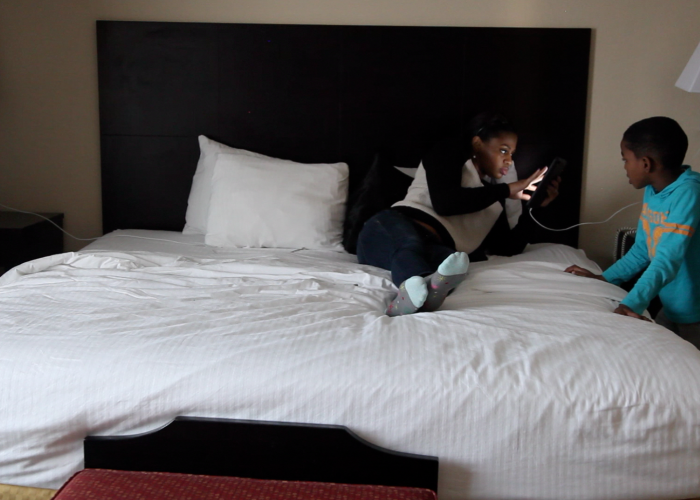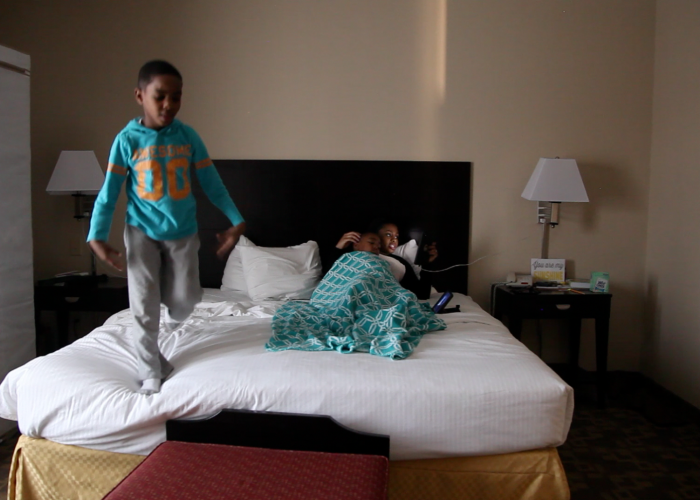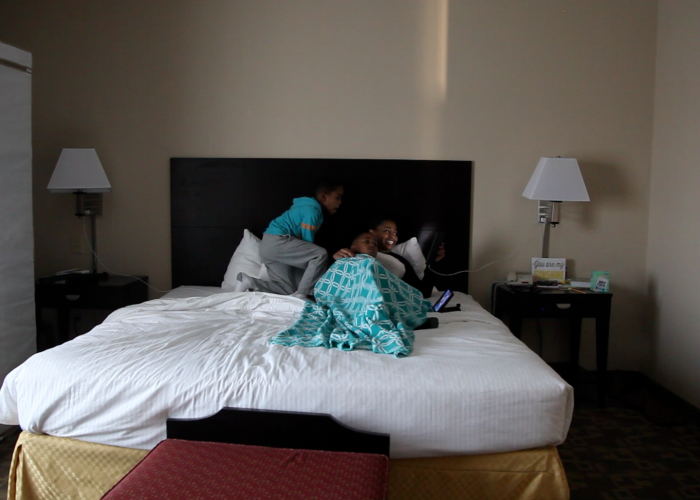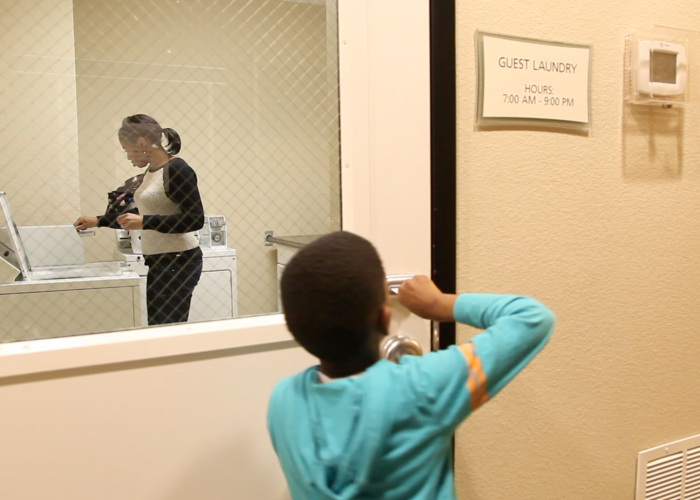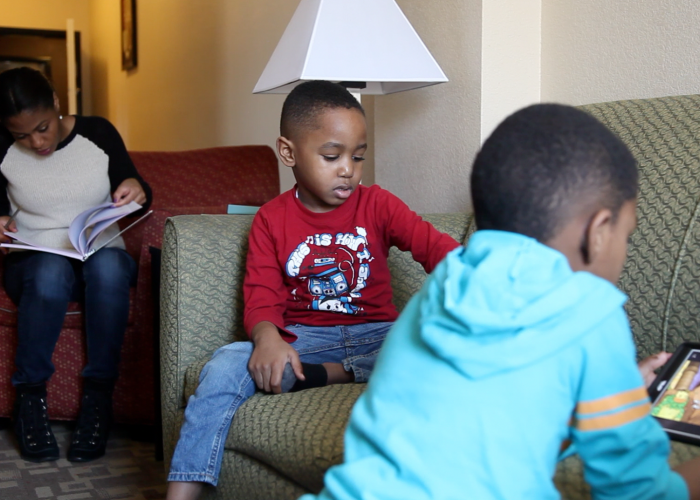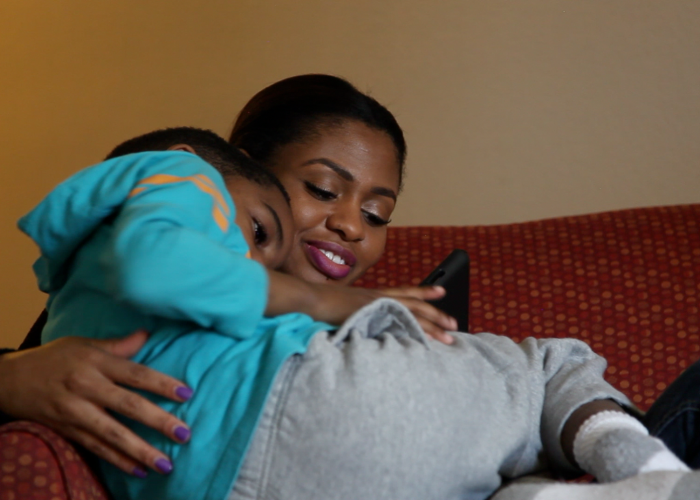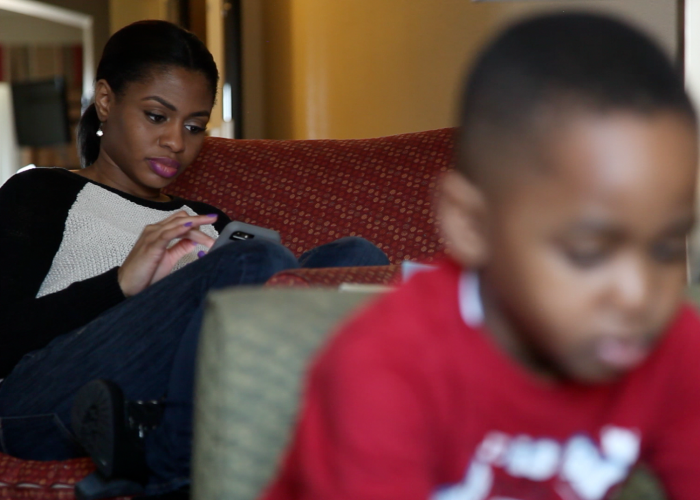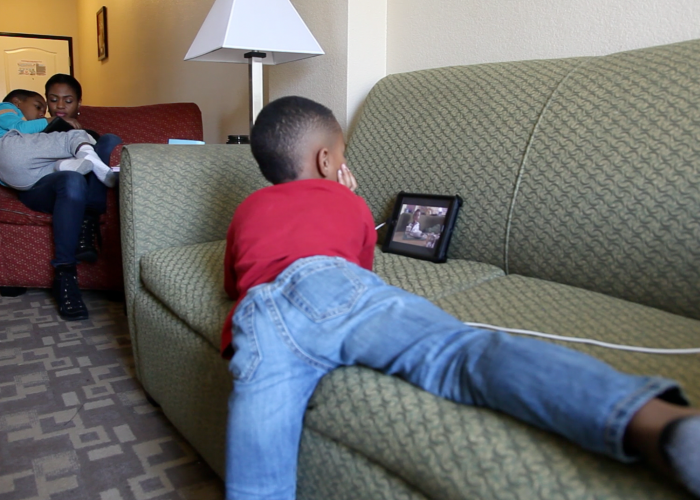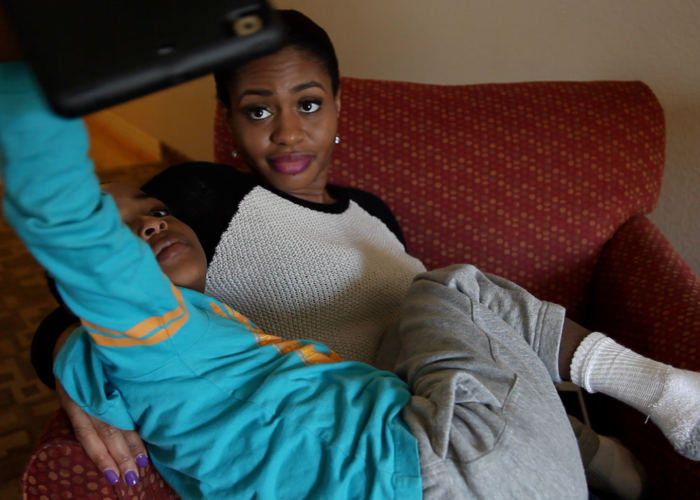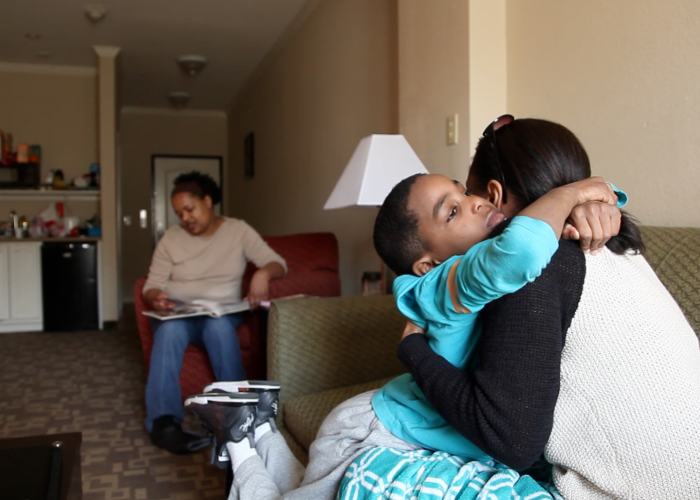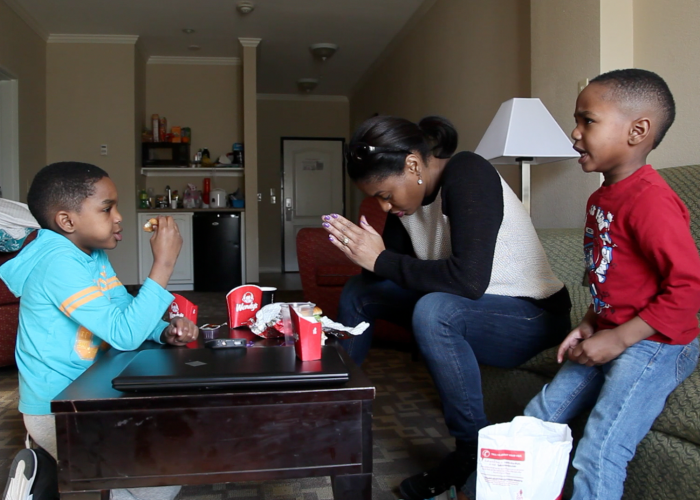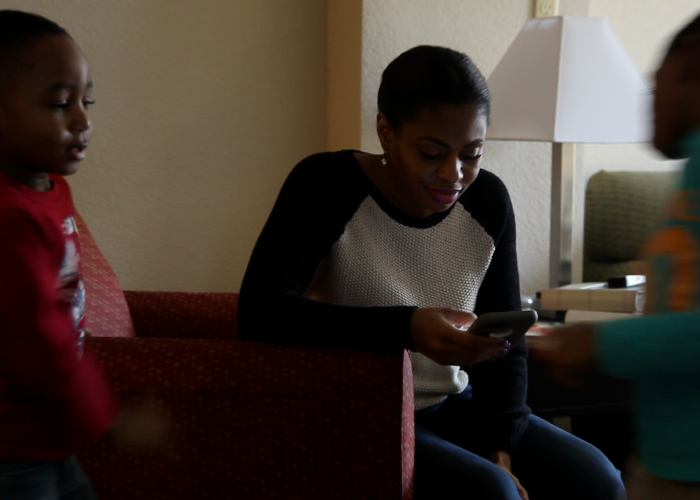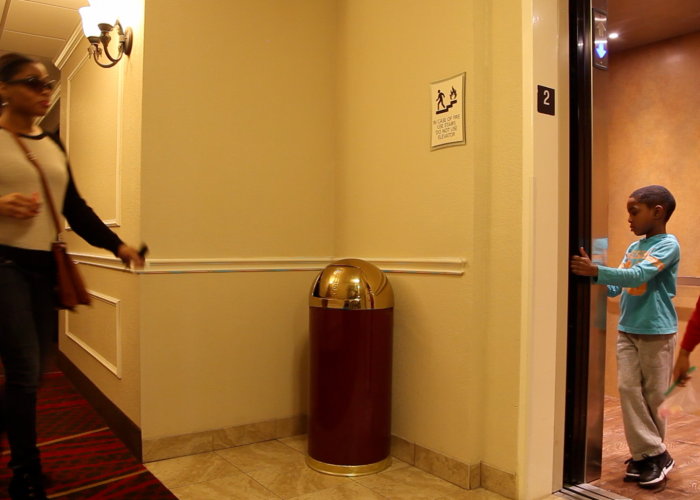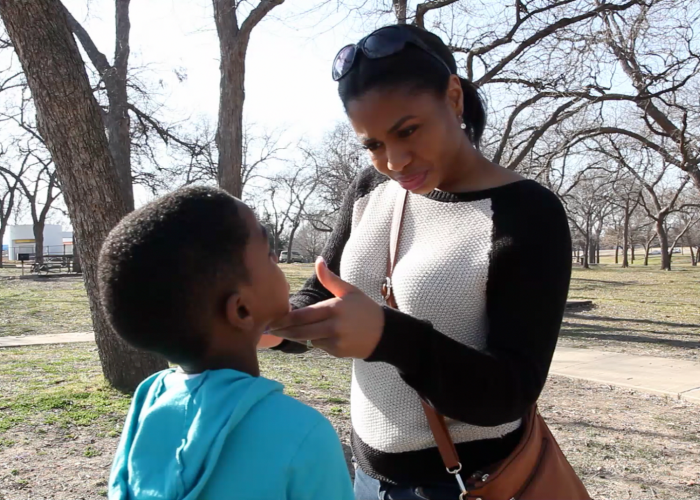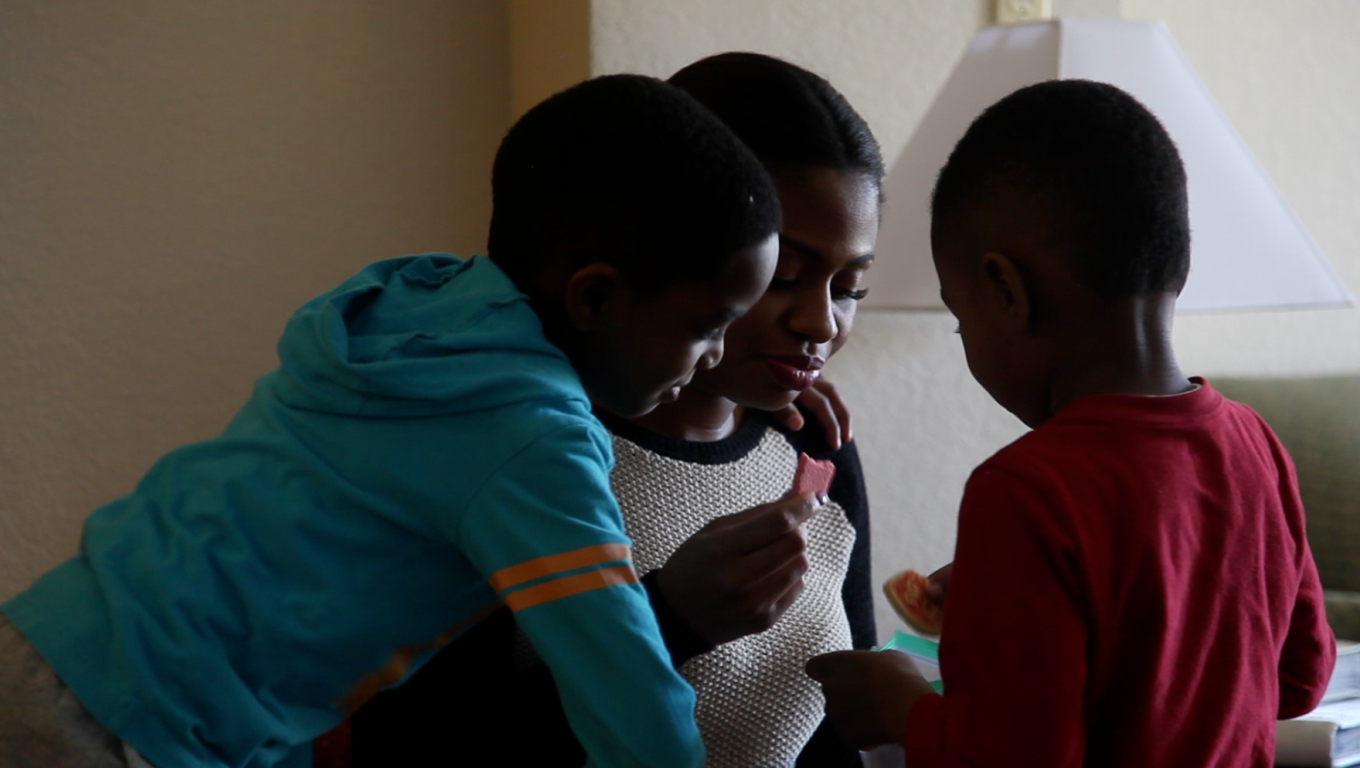 Jennifer Anderson and her two sons, Jayden and Jordan, ages 6 and 4
Jennifer Anderson and her two sons, Jayden and Jordan, ages 6 and 4 have been living in a hotel room since the storm. Photo/Thorne Anderson
For This Single Mom, Recovering From Disaster Is Nothing New
Single mom Jennifer Anderson had already rebuilt her life once before. After her husband’s suicide in Las Vegas, she picked up her two toddlers and moved to North Texas. Then two years later, the day after Christmas, a tornado hit her Garland home.
The only thing tougher than battling back from disaster is doing it twice.
When Anderson ushers guests into the living room of her wrecked second-floor apartment, she chuckles, calling it her “self-made patio.” Then she corrects herself.

Jennifer Anderson. Photo/Thorne Anderson
“Or tornado-made patio,” she says.
“That’s exactly what it is. You can see the nails are all still there where it just ripped the whole wall, along with the roof, off the building.”
She’s not exaggerating.
The back wall and living room ceiling are gone.
Those brave enough to peek over the edge of the apartment building will see a pile of shattered toys, sofa cushions and gnarled debris mashed into the grass below.
Anderson’s living room floor is covered with glass, water-logged books, and diapers that must have belonged to a baby downstairs. A single child’s shoe sits alone, stuffed with insulation by the wind.
So much of what she owned was ruined. Only a few things survived.
“In the wet bar the glass is still there, and it’s not even bolted in or anything, you just lift it up,” she says. “It was still there, and there was a family portrait that was still there with no frame.”
Even while wading through a sea of shattered possessions, Anderson is cheerful.
VIDEO: Jennifer Anderson Shares Her Story
LEARNING TO LIVE FRUGALLY
Anderson and her two young sons, Jayden and Jordan, have spent two months in a hotel room where there’s not much in the way of a kitchen.
“I went into Walmart with my gift card and invested in a rice cooker, so a lot of my meals come from that,” she says. “Cook some rice, steam some veggies, steam some chicken.”
That kind of frugal creativity is her mission right now. She had a $10,000 renter’s insurance policy when the storm hit. The problem is, when three people lose everything, $10,000 doesn’t stretch very far.
“You don’t realize how much every little single thing costs until you’re replacing it,” she says.
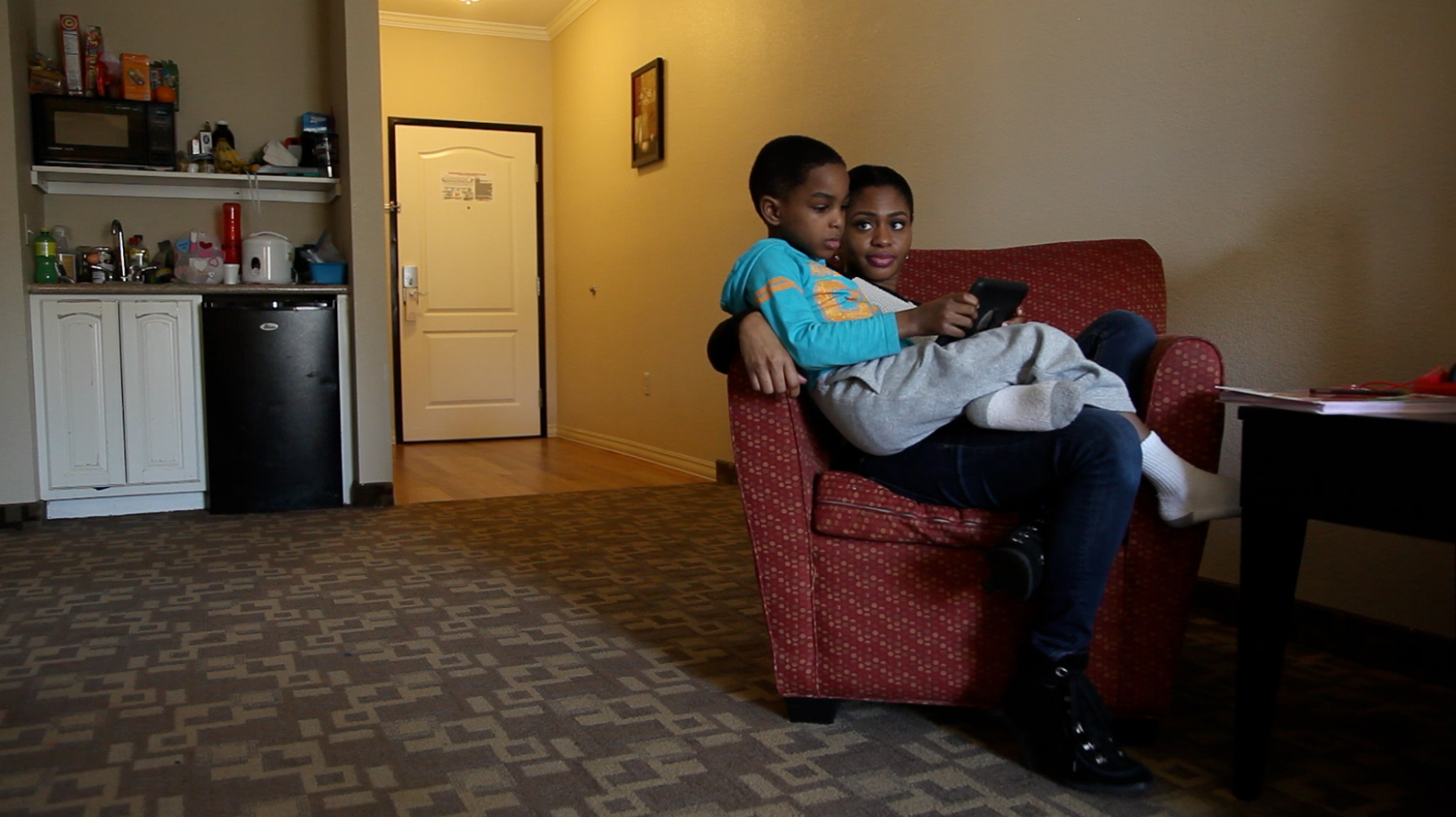
Jennifer Anderson with her oldest son, Jayden, 6, in their hotel room. Photo/Thorne Anderson
She’s had to replace so many things. There are kids’ shoes and socks, underwear, toys and towels. Then there’s furniture. Like the bed Jayden and Jordan shared. It was near a broken window, rain-soaked and covered with glass.
The bed was hauled away and trashed, which revealed some incriminating evidence.
“Candy that they weren’t supposed to have!” Anderson says. “They snuck candy, threw the paper under the bed. Just like little boys do.”
THE TRAGEDY BEFORE THE TORNADO
For Anderson, surviving a tornado is just the latest chapter in her story.
After her husband’s suicide, she moved to Texas to “regroup and start over.”
“I wanted to be close to home, but I wanted to be somewhere that I didn’t have a lot of memories,” she says.
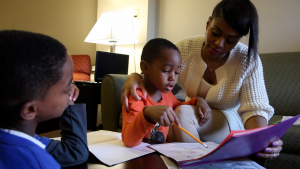
Jennifer Anderson and her sons going over some homework. Photo/Thorne Anderson
Her oldest, Jayden, was 3 when he lost his dad. Two years later, both boys still talk about him constantly.
“Just a couple of weeks ago, I was giving them a bath, and the 4-year-old picked up his towel and he said, ‘This is how my Daddy wrings out the towel, you don’t wring it like Daddy.’
“And I looked at him and I saw what he was doing and I was like, ‘You’re exactly right, that’s exactly how he wrings out the towel.’”
“It’s hard to kind of focus on that when you’re still trying to make ends meet. You’re trying to focus on: Where am I going to live. When am I going to be able to get furniture?”
FINDING IT HARD TO FOCUS
Experts have a word for what she’s been through.
“A simple definition of trauma is any event that’s shocking, scary, unexpected and possibly dangerous,” says Kay Colbert, a clinical social worker and board member at Mental Health America of Greater Dallas.
Colbert says surviving back-to-back traumas can force someone into a state of what’s called “hypervigilance” — constantly being on the alert for disaster.

Jennifer Anderson at Carver Elementary in Garland. Photo/Thorne Anderson
“I talk about it with people as like a radar scanner,” Colbert says. “So you think, ‘Oh my gosh? When is the next bad thing going to happen?’”
Colbert says that’s just one of the many symptoms that can slam into someone after a traumatic experience — symptoms that can linger six months or longer.
“Really high levels of anxiety. They’re always feeling tense or edgy,” Colbert says. They have angry outbursts maybe, or they have a lot of crying. They feel weepy, tearful, or they isolate. They have trouble focusing.”
Anderson can relate to that. Just before the tornado hit, she quit her full-time job managing a mental health clinic. Determined to spend more time with her kids, she now works flexible hours for Primerica, a financial services company.
That means her weekly take-home pay has gone from $700 to $350. Anderson hopes to add another part-time job to supplement her income once she and her two boys get settled into a new apartment.
“It’s hard to kind of focus on that when you’re still trying to make ends meet,” Anderson says. “You’re trying to focus on: Where am I going to live? When am I going to be able to get furniture?”
“When you’ve already felt like you’ve had to start over. And you feel like ‘I’m just now rebuilding, I’m just now catching my breath.’ And then something like this happens. It’s really hard.”
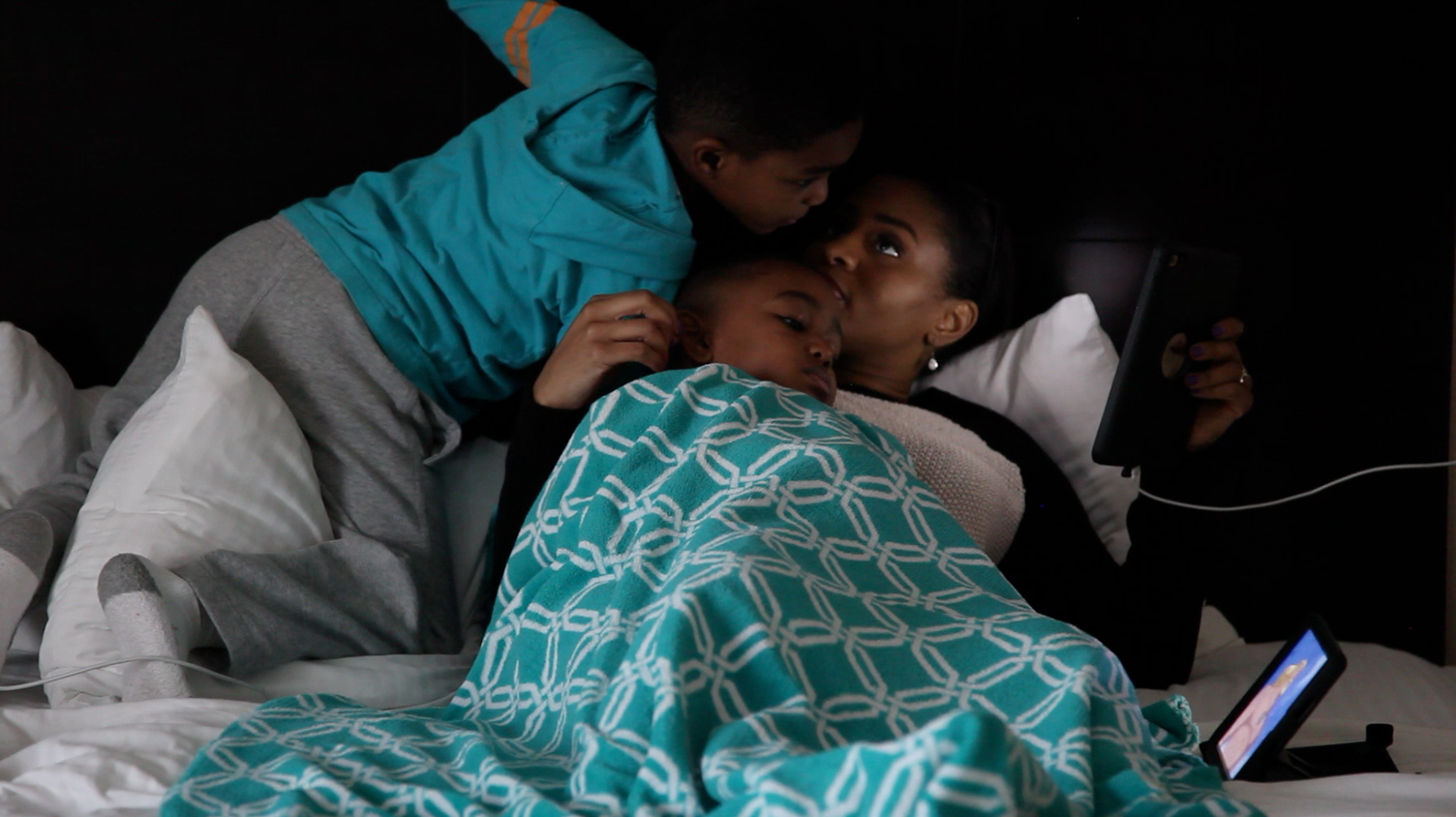
Jennifer and her son, Jordan, 4, during some down time in their hotel room. Photo/Thorne Anderson
KNOWING HER OWN STRENGTH
Money worries aside, there are some days Anderson has trouble mustering the strength to press reset again.
“When you’ve already felt like you’ve had to start over,” she says. “You feel like ‘I’m just now rebuilding, I’m just now catching my breath.’ And then something like this happens. It’s really hard.”
Nobody expects to lose a spouse and a home in two years. Nobody’s prepared for that kind of financial and emotional hit. Anderson certainly wasn’t.
“I’m still here and I’ve gone through all these different things,” she says. “And I feel like there has to be a reason that I’m still here. I’m still able to stand on my own two feet.”
You never really know how resilient you are until something tests your strength. Anderson’s passed that test, twice.
She had two pretty good reasons.


